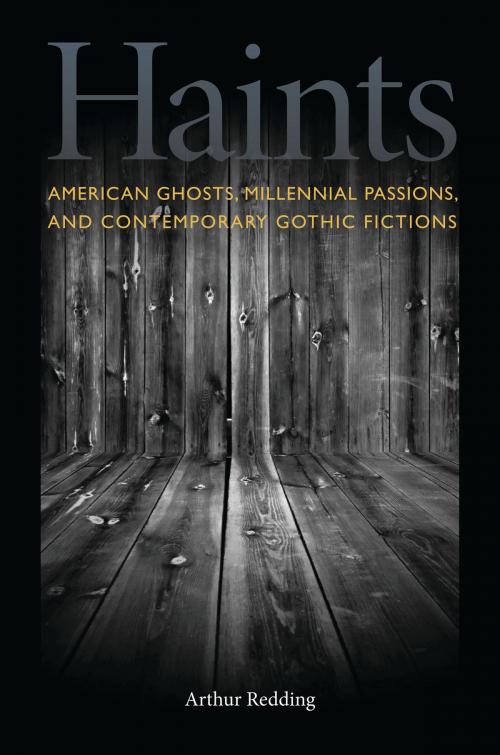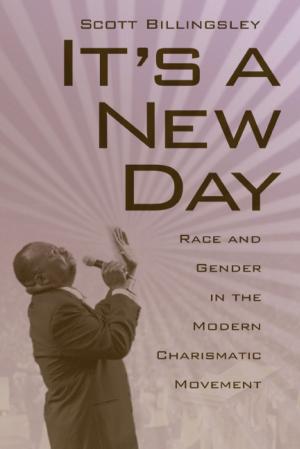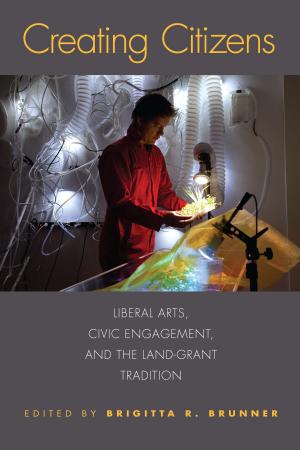Haints
American Ghosts, Millennial Passions, and Contemporary Gothic Fictions
Fiction & Literature, Literary Theory & Criticism, American| Author: | Arthur F. Redding | ISBN: | 9780817385729 |
| Publisher: | University of Alabama Press | Publication: | September 15, 2011 |
| Imprint: | University Alabama Press | Language: | English |
| Author: | Arthur F. Redding |
| ISBN: | 9780817385729 |
| Publisher: | University of Alabama Press |
| Publication: | September 15, 2011 |
| Imprint: | University Alabama Press |
| Language: | English |
In Haints, Arthur Redding examines the work of contemporary American authors who draw on the gothic tradition in their fiction, not as frivolous or supernatural entertainments, but to explore and memorialize the ghosts of their heritage.
Ghosts, Redding argues, serve as lasting witnesses to the legacies of slaves and indigenous peoples whose stories were lost in the remembrance or mistranslation of history. No matter how much Americans willingly or unwillingly repress the true history of their ancestry; their ghosts remain unburied and restless.
Normal0falsefalsefalseEN-USX-NONEX-NONEMicrosoftInternetExplorer4Such authors as Toni Morrison and Leslie Marmon Silko deploy the ghost as a means of reconciling their own violently repressed heritage with their identity as modern Americans. And just as our ancestors were haunted by ghosts of the past, today their descendents are haunted by ghosts of contemporary crises: urban violence, racial hatred, and even terrorism. In other cases that Redding studies—such as James Baldwin’s The Evidence of Things Not Seen and Toni Cade Bambara’s Those Bones Are Not My Child—gothic writers address similar crises to challenge traditional American claims of innocence and justice.
Finally, Redding argues that ghosts emphasize a growing worry about a larger impending crisis: the apocalypse. Yet the despair the apocalypse inspires is vital to providing the grounds for new solutions to modern issues. In the end, the armies of the dispossessed enlist the forces of the spirit world to create a better future—by ensuring that mistakes of the past are not repeated, that Americans do not deny their heritage, and that accountability exists for any given crisis.
In Haints, Arthur Redding examines the work of contemporary American authors who draw on the gothic tradition in their fiction, not as frivolous or supernatural entertainments, but to explore and memorialize the ghosts of their heritage.
Ghosts, Redding argues, serve as lasting witnesses to the legacies of slaves and indigenous peoples whose stories were lost in the remembrance or mistranslation of history. No matter how much Americans willingly or unwillingly repress the true history of their ancestry; their ghosts remain unburied and restless.
Normal0falsefalsefalseEN-USX-NONEX-NONEMicrosoftInternetExplorer4Such authors as Toni Morrison and Leslie Marmon Silko deploy the ghost as a means of reconciling their own violently repressed heritage with their identity as modern Americans. And just as our ancestors were haunted by ghosts of the past, today their descendents are haunted by ghosts of contemporary crises: urban violence, racial hatred, and even terrorism. In other cases that Redding studies—such as James Baldwin’s The Evidence of Things Not Seen and Toni Cade Bambara’s Those Bones Are Not My Child—gothic writers address similar crises to challenge traditional American claims of innocence and justice.
Finally, Redding argues that ghosts emphasize a growing worry about a larger impending crisis: the apocalypse. Yet the despair the apocalypse inspires is vital to providing the grounds for new solutions to modern issues. In the end, the armies of the dispossessed enlist the forces of the spirit world to create a better future—by ensuring that mistakes of the past are not repeated, that Americans do not deny their heritage, and that accountability exists for any given crisis.















